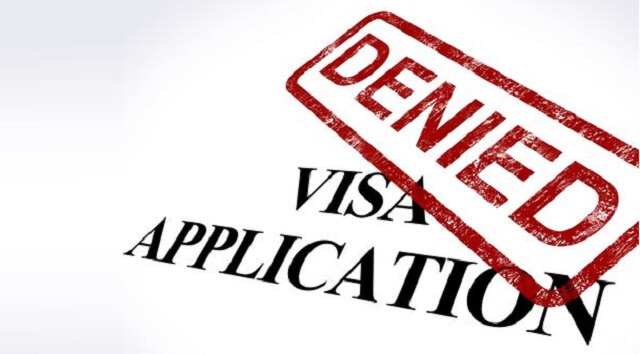A visa application can be a long and strenuous process. Add that to the fact that the U.S. visa policy is very detailed and specific, and it’s no wonder why there are so many denied applications every year. Nevertheless, there are several ways you can increase your chances of approval, and one of the best ones is to know the reasons why visas get denied in the first place.
When talking to an immigration attorney, they will likely go over the common causes of denial, but it won’t hurt to start doing your research early. Here are some of the most common grounds for denial when applying for a U.S. visa.
- Incomplete application or documentation
One of the most common reasons why some visa applications get denied is because of incomplete applications and/or documentation, or denial under INA section 221(g). This denial means that the application did not complete all the necessary information in their application and/or submit all required supporting documents. Fortunately, this type of denial is not a complete denial.
An applicant can still complete their application and submit missing documents before resubmitting their application. If this is the case for your denial, you will be given one year to complete your application. If you fail to submit within one year, your application will be dismissed and you will have to start all over again.
- Visa qualifications and immigrant intent
A denial under INA section 214(b) means that the applicant failed to convince the consul that they qualify for the nonimmigrant visa that they have applied for and that they do not intend to immigrate to the U.S. The applicant can prove that they have strong ties to their home country and do not plan to immigrate if they:
- Have a job
- Is married/engaged/in a relationship
- Have children
- Have a property in their home country
- Have good relationships with family and friends
Similar to the previous reason for visa denial, this is not permanent, although you cannot file an appeal. You can try again with another application and prove strong ties with your home country with the factors mentioned above.
- Public charge
An applicant that is denied under INA section 214(a)(4) has been deemed by the consul as likely to become dependent on the U.S. government for financial support while in the U.S., otherwise known as a “public charge”. You can appeal this type of refusal by proving otherwise, depending on the type of visa you’re applying for.
If you are immigrating to the U.S., you will likely be asked to submit an Affidavit of Support from the U.S. sponsor that filed the petition for you. You may also prove financial support by showing your own personal funds, presenting a job offer in the U.S., or proving sponsorship from a U.S. resident. If you are not immigrating to the U.S., you can prove that you will not be a public charge by demonstrating sufficient financial support for your temporary stay in the country. Luckily, this type of visa denial is less frequent for nonimmigrant visa applicants.
- Fraud and misinterpretation
A refusal under INA section 212(a)(6)(C)(i) is done when you falsely represent facts, commit fraud, or hide information. If your visa is denied, for this reason, you will be permanently ineligible and won’t be able to get a visa no matter what. You can, however, ask the consular officer if there is a way to get an ineligibility waiver so you can try again.
That said, do not hide any information, misrepresent facts, or commit any type of fraud when trying to get a visa. The consul will find out and you may never get a visa now or in the future.
- Unlawful presence in the U.S.
If you are considered to have been unlawfully present in the country, your visa application will be denied under INA section 212(a)(9)(B)(i). Unlawful presence either means that you:
- Stayed in the country after the expiry of your approved period of stay
- Entered the country without the required authorization from the Customs and Border Protection
You will not be able to get a visa for three years after you leave the country if you were staying in the country unlawfully for more than 180 days but less than one year. Otherwise, you will not be able to get a visa for ten years.
There are a lot more reasons why a U.S. visa application can get denied, but these are the most common. Actively avoid these reasons for the denial to increase your chances of approval. If you need help, contact an immigration attorney to assist with your application before you begin the process.

